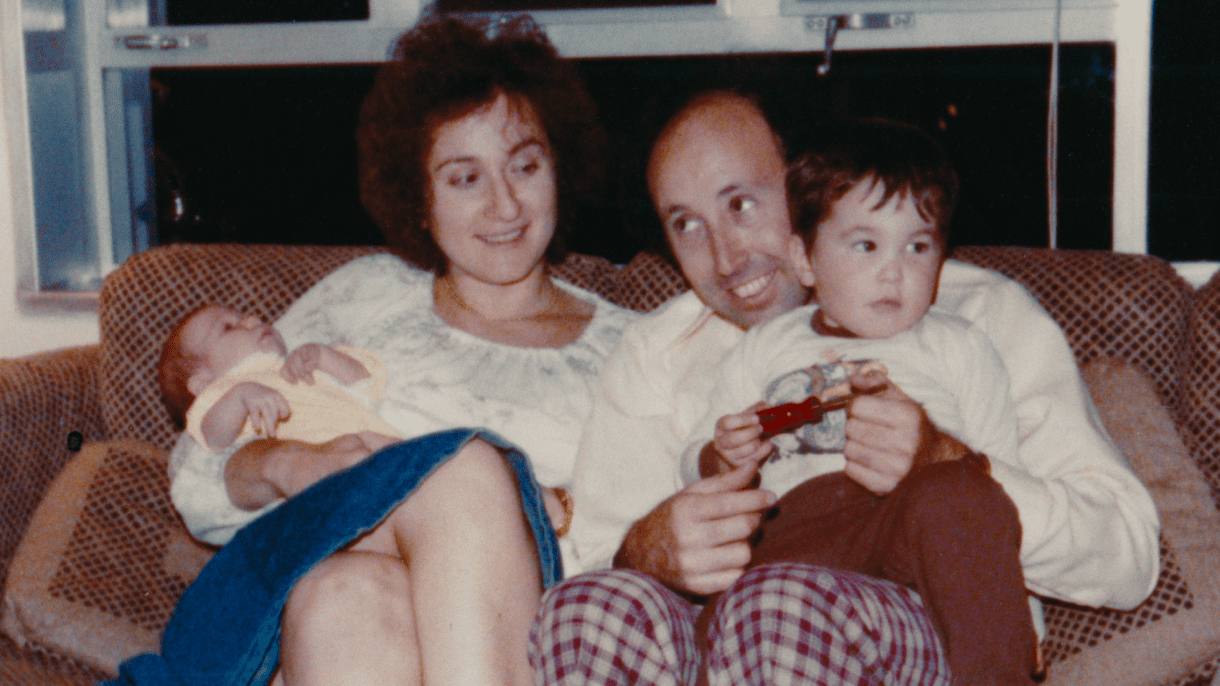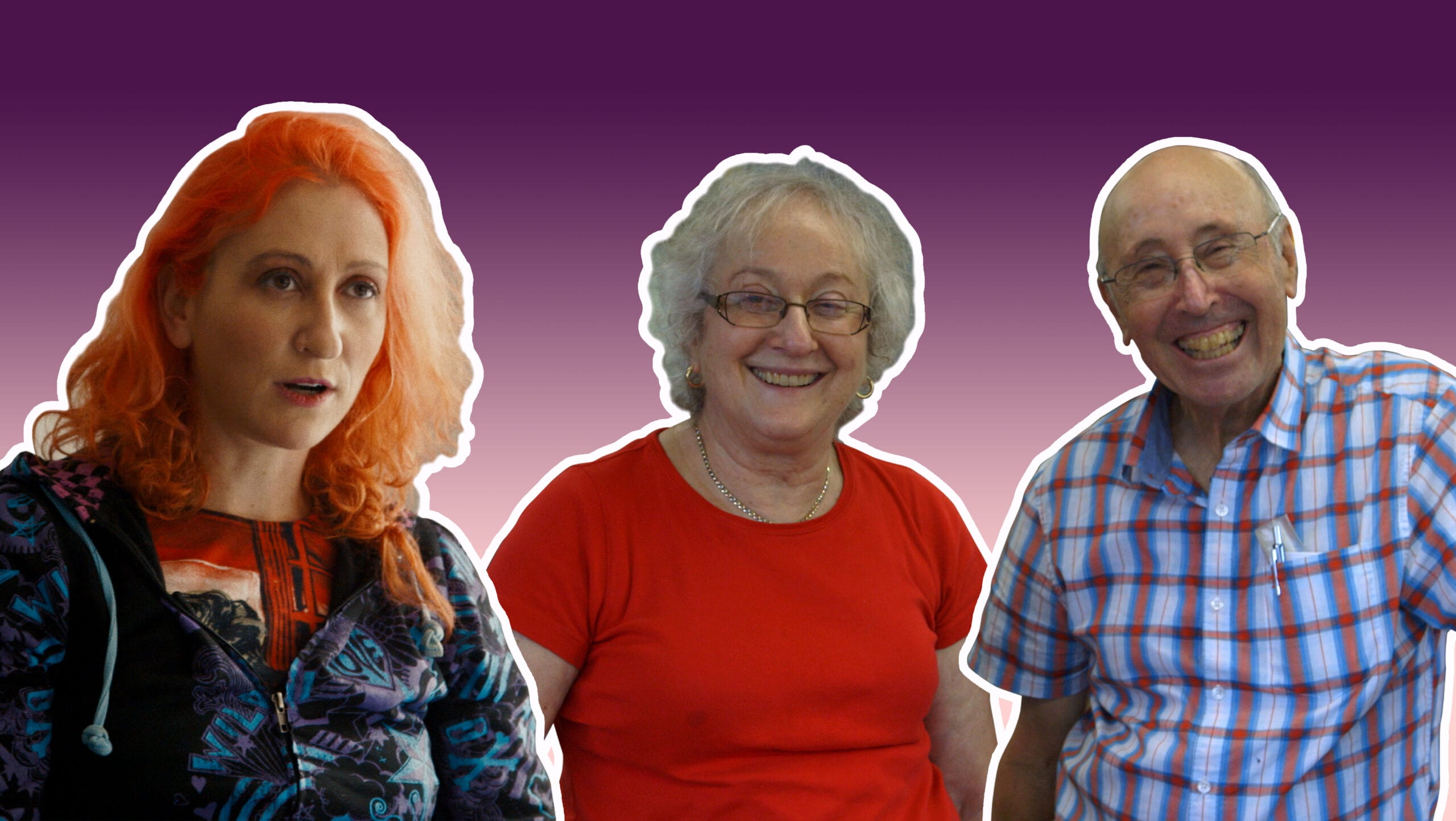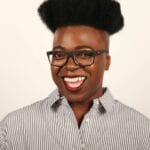When Rachel Mason was a child, she knew very little about her parents’ job, except for the fact that she couldn’t tell anyone the name of the bookstore they owned. That’s because her mother Karen and father Barry ran Los Angeles’ Circus of Books, an adult emporium that grew into a gay porn empire. “I thought that was unfortunate because I liked the name,” Mason says about not being able to tell people about the store. “I always assumed every store had an ‘over 18’ section.” Circus Books was open for more than 35 years, and Mason eventually learned of the important role her mom and pop had in Los Angeles and queer history. Their story is the basis of a new documentary, now streaming on Netflix and directed by Mason, aptly titled Circus of Books. The doc, which premiered at the Tribeca Film Festival last year and is executive produced by Ryan Murphy, seamlessly weaves together two narratives. On its surface, it chronicles how Mason’s parents got into the adult industry and how their store became a safe haven and support system for West Hollywood’s LGBTQ2 community. This part is told through interviews with drag superstar Alaska Thunderfuck (who was an employee of the store before she found fame), former porn star Jeff Stryker and Larry Flynt, the famed publisher of explicit magazines, most notably Hustler. Using home video and interviews with the entire Mason household, the film also provides a portrait of a family whose conservative, Jewish identity differed dramatically from their source of income. Circus of Books is Mason’s first feature-length doc, an addition to her already well-regarded career as a visual artist, songwriter and performer. She has recorded 13 albums, toured worldwide and exhibited sculpture, video and performance art. Her work has appeared at the Whitney, the Los Angeles County Museum of Art and Kunsthalle Zürich in Switzerland, among other venues. I spoke with Mason about cementing her family’s legacy in film, what it was like to be the child of gay porn mini-magnates and the importance of allyship.
Your family’s story of running this now legendary business is perfect fodder for a documentary. What set you on the path to create it?
This project started almost a decade ago. It went from a little student film project in 2004, to a blog post on a website, to a series of conversations to a film. I set out to make the movie about my parents’ store in order to document an important moment in gay history that I knew would go away forever if I didn’t make the film.
The story is made all the more intimate by hearing your voice from behind the camera. That’s always a choice filmmakers can make. Were you hesitant at all?
I was totally hesitant about doing it—so much so that when I set out to make the film, I didn’t think I should even direct it myself. Initially, I worked in tandem with my producer Cynthia Childs to co-direct. But the process really forced all of our hands. Often, the best lines would come when I was sitting behind the camera: People like Larry Flynt and Jeff Stryker wanted to talk to only me and tell me what my parents meant to them. It was very personal. The story really directed itself. My job as the director was to just guide the ship—and at many points it was guiding itself.
You also include a lot of old family videos. How did you go about finding them and incorporating them?
My dad had taken a lot of home videos over the years, and in looking through them I discovered that I had shot a lot of the footage. I found footage that I shot of my friends in high school in the ‘90s, which was like my holy grail of footage for the film. We really were the misfits and the freaks, and I had this renewed love for them when I looked at that footage. I have seen them go on to lead many different, interesting lives and embrace different aspects of queer culture. My friends and I found each other and embraced our unique sexualities. I see it in the footage; we gave ourselves a cushion from the outside world.
In what ways did your Jewish upbringing and your parents’ jobs intersect, if at all?
The Masons were a conservative Jewish family at the heart of a gay porn empire. Credit: Courtesy Netflix
Being Jewish and culturally conservative was the huge overarching story of my family life, which was totally controlled by my mom. I fought it endlessly, and I really resented the way the religion eclipsed many values that I felt on a personal level. Like the expectation that we were supposed to “marry Jewish” when we went to school with mixed kids, almost none of them Jewish. We were really caught between worlds. And to add to that, my parents were involved in the gay counterculture, something I only realized much, much later. At first I was really pissed off at the obvious hypocrisy, and it was fodder for my own rebellion. But at the same time, I felt a sense of pride.
What was the most surprising thing you learned?
The two biggest things had to do with learning how close my parents came to going to jail. The interview with their lawyer made me realize that this was no slam dunk. They came very, very close, and they knew many people in the industry who served hard time. Although I always rebelled against my mom’s religious and moral authority, I was able to see my parents—and especially my younger brother—with a new sense of empathy. I realized that my mom was just trying to do what seemed “right” to her and trying to raise us as best she could.
And the second?
What I realized in doing the interview with my brother that I had, until then, never really even thought about, was that, although I don’t get into my sexuality in the film, I had always felt free to be who I was. Queer, bisexual, LGBTQ never even felt like enough for me, as I never liked any kind of labels. But I was for all of it, and have called myself almost every letter of the spectrum except T. The idea of “coming out” seemed boring and pointless to me because I was already a rebel and waiving my freak flag. With all of my friends flaunting drag, dating anyone we wanted and everything else, my parents didn’t seem to even notice or care as long as I was coming home in one piece. But then, I realized painfully, that I must have been presenting [my brother] Josh with a “too gay” version of gayness, which for him wasn’t at all his vibe. He is a quiet, soft-spoken perfectionist who just wanted to be accepted and be “normal.” I was so busy with my scene of artists and outsiders that I had no time to even notice what he was going through and that I was possibly contributing to his feeling of alienation. Because to be gay is not necessarily to be a wild child. It was also a revelation to really take in my mom’s homophobic and religious reaction to his coming out, with the condemning words of “God must be punishing me.” I think the fact that Josh was perfect, and also a boy, was an additional layer of pressure that I don’t think women face on a biblical level, because the Bible doesn’t actually come down on women outright for homosexuality.
While this is invariably a chronicling of LGBTQ2 history, it very much centres a cishet couple. What do you think that says about allyship and its role in the fight for equality?
They are like the “righteous gentiles,” the term given to those non-Jewish people during World War II who, despite the huge personal dangers, hid Jews from the Nazis inside their own homes. When you read interviews with those people, they sound just like my parents who just felt like they were doing the right thing and they probably wouldn’t have been able to live with themselves if they hadn’t. I feel very proud of my parents when I look back, and I think that’s the definition of allyship—doing the right thing, the righteous thing.
How does it feel to have a hand in forever cementing your parent’s important role in Los Angeles and queer history?
I feel just plain lucky that I got this chance to document their role—a million different variables feel like they were placed in front of me at the right moment which enabled me to tell this story. But it also makes me feel melancholy for the stories that have not been captured because there were no filmmakers or people standing ready to document the many other niche chapters in what is really an untold history of an underground society. Because the queers were always so hidden and forced into the shadows, there are many, many unsung heroes in the struggle for LGBTQ rights. I hope this film does something to draw attention not just to my parents, but to all of those people.
The film ends with the closing of the bookstores. What was it like for you to witness that as a filmmaker and someone whose livelihood once depended on it?
It was sad for me to see, because those two stores were a part of my childhood. I suppose the closest parallel would be if you lived in a house all your life and then you had to move, or the house had to be torn down. I had always lived with those stores in the picture—even when I lived elsewhere in the world, I would always come back to L.A. and find my parents working there. A few years back they had to let two of their longest employees go. That was the first real blow that felt like the house was crumbling. I have a deep nostalgia for gay porn and the world that surrounds it and that’s why I wanted to make this film. I really do love the culture, and I love gay men. I feel very much in that world myself as these were the people who always embraced me.
Now that Circus of Books is closed, what do your parents do? Are they still involved in the gay adult film industry?
Their big thing right now is PFLAG. They help other parents and do specific outreach to other communities that are most in need. They don’t do a whole lot in the adult industry, apart from being the owners of the building which housed their West Hollywood store—it’s now Chi Chi LaRue’s, another gay, sex-oriented retailer, but a higher-end one.
How does this film fit into your broader project as a multi-disciplinary artist?
I think it lured me like a fly into the light at the most amazing time for outsiders to enter the film and television industry as creators. I left Los Angeles in 2001, primarily because I thought this city made no sense for me. The film industry was dominated by boring stories I had no interest in. I moved back here to complete Circus of Books. I thought this could at best live in the One Archives [the national queer archives at the University of Southern California] or some wonderful repository for LGBTQ history. Instead, I came back at a moment when the powerhouses are all brilliant mavericks with their own unique approaches, like Jill Soloway, Ryan Murphy, Ava DuVernay, Lena Waithe, Barry Jenkins. And my film has been championed by the biggest mainstream platform in the world. So something is happening that is really feeling right for me, as an artist entering the mainstream, because I didn’t have to really do anything to change my work to enter it. One thing I’m proud of is that I wrote the end credit song for the film. I was really happy to be able to bring a tiny bit of my music into it, as that’s what I was doing before this film, and will continue to do after.
What’s next?
My next film is a fictional story about black holes, based on the real science of gravitational waves that has emerged in the past few years. It is also a story about gender, co-written with a brilliant actress and producer Rain Valdez. I wrote the music, and I have two great producers Darren Dean, who produced Tangerine and The Florida Project, and Josh Braun of Submarine Entertainment—which is responsible for many Oscar-winning docs and indie films in recent years. This email interview has been edited for clarity and length.


 Why you can trust Xtra
Why you can trust Xtra


